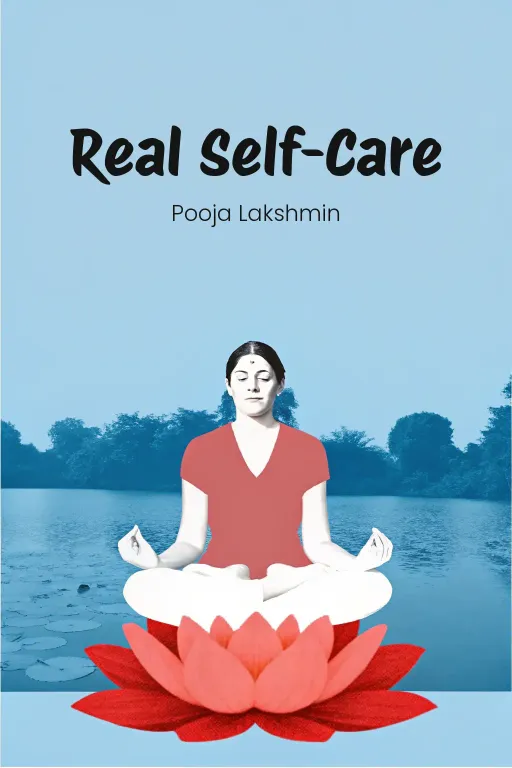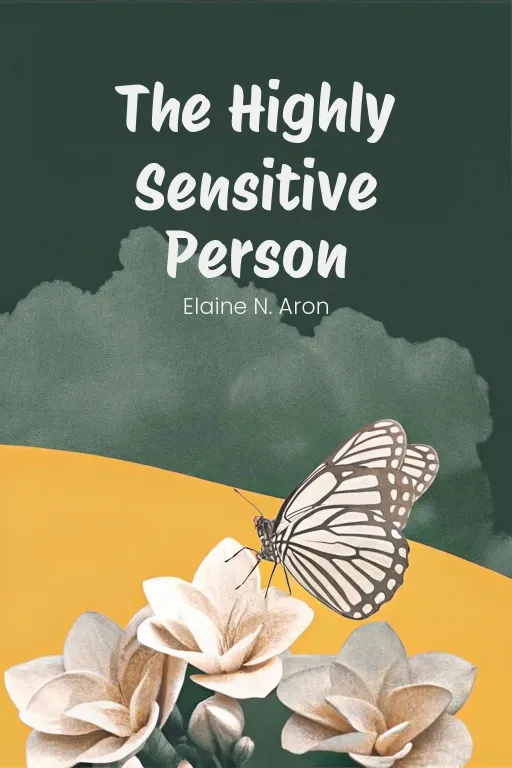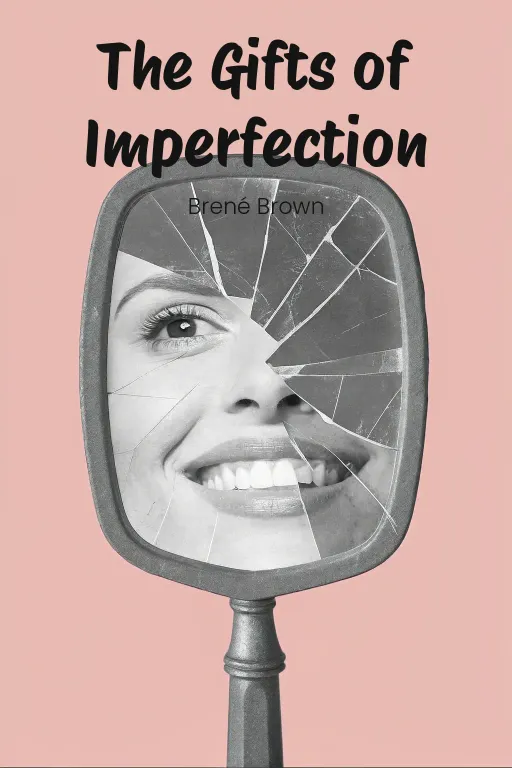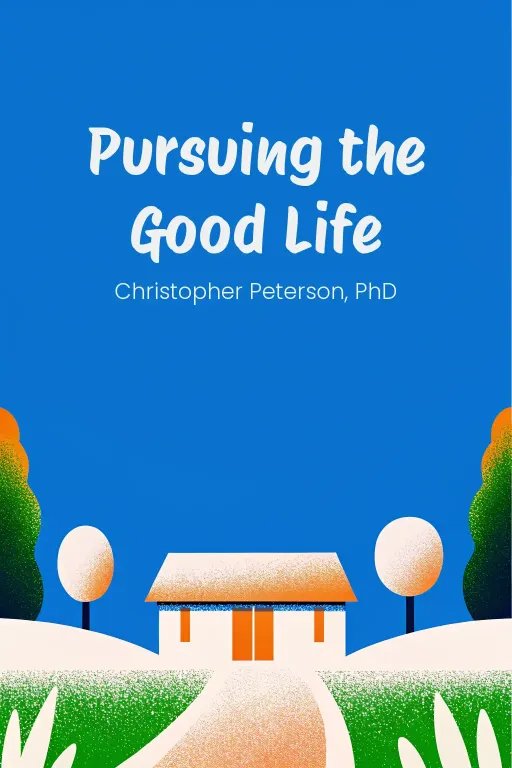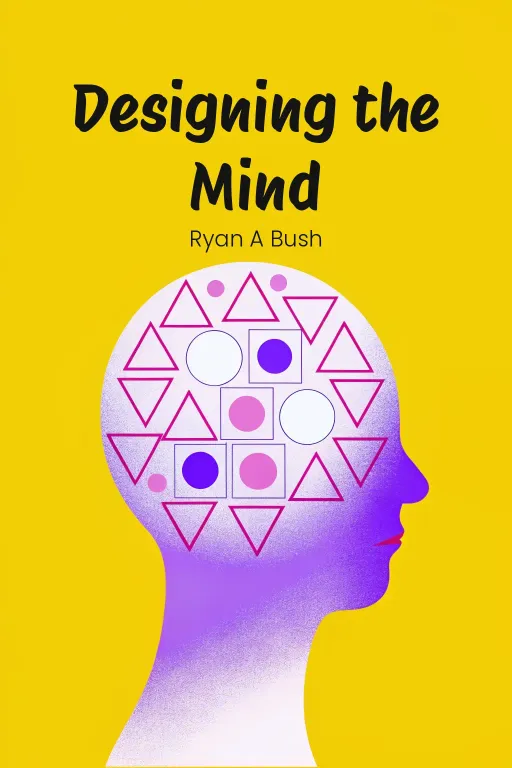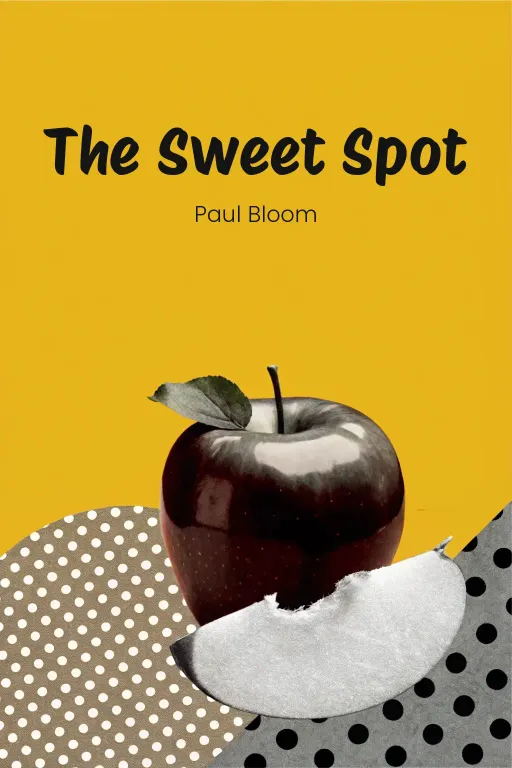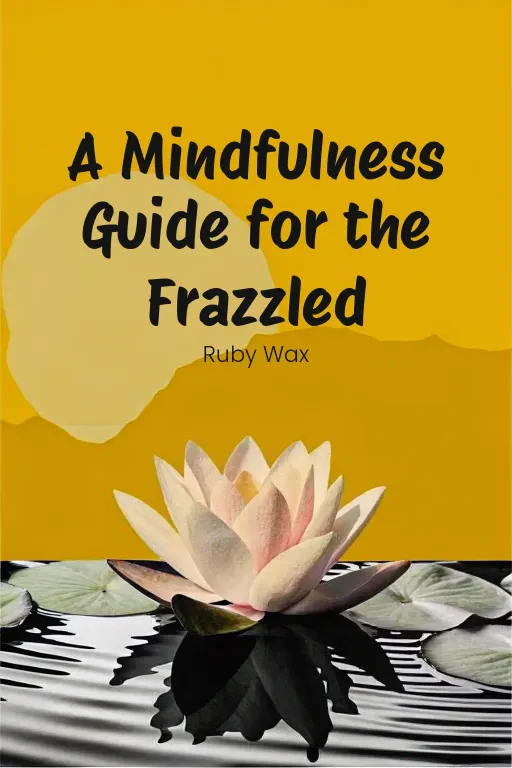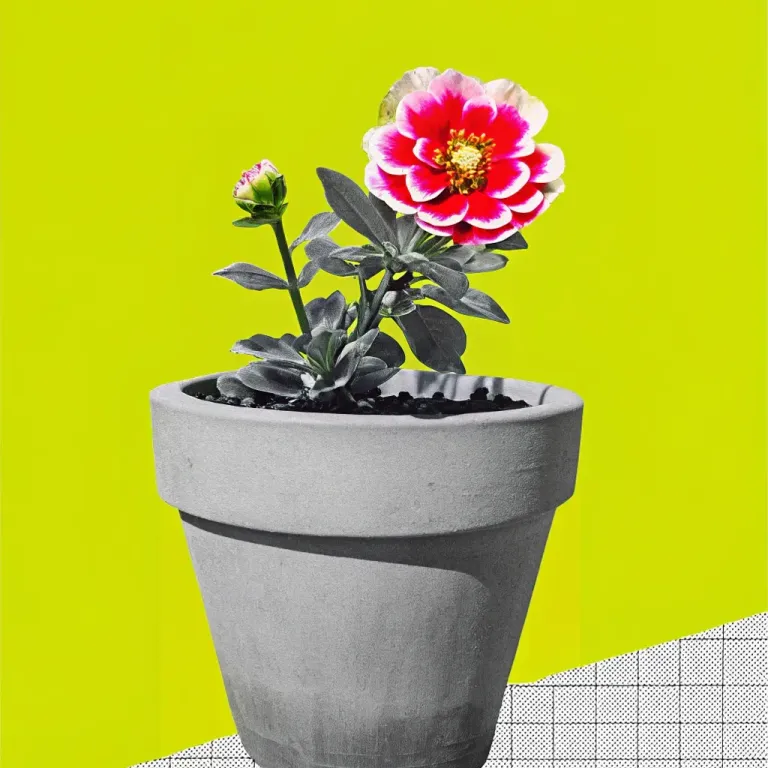
Beyond Bath Bombs: Real Self-Care
Podcast by The Mindful Minute with Autumn and Rachel
A Transformative Program for Redefining Wellness (Crystals, Cleanses, and Bubble Baths Not Included)
Beyond Bath Bombs: Real Self-Care
Part 1
Autumn: Hey everyone, welcome to the show! Today we're tackling something that's everywhere you look: self-care. But honestly, does that fancy candle “really” cure burnout? Or is there something more to it? Rachel: I'm betting on "more," Autumn. If bubble baths could solve modern life, we'd all be enlightened by now, wouldn't we? So, what's actually driving this whole self-care thing? Autumn: Exactly! That's what Pooja Lakshmin digs into in her book, “Real Self-Care: A Transformative Program for Redefining Wellness”. It's not just another self-help book. She breaks down the Instagram-perfect self-care myths and offers a real, lasting framework. She argues that true self-care is about setting boundaries, practicing self-compassion, and taking back control—not just covering up bigger problems with another spa treatment. Rachel: Right, so it’s both personal and societal. Lakshmin calls out those expectations and privileges that keep us stuck on the self-care treadmill. Plus, she gives you real, usable tools to actually make changes that go deeper than just the surface level. Autumn: Which is why I’m so excited about today's podcast. We’re going to take apart what I like to call "faux self-care," explore the systemic issues that keep people stuck, and walk through Lakshmin’s four tools for reclaiming real power in your life. Rachel: Yeah, think of it as replacing a flimsy band-aid with a solid, actionable plan. We’re gonna look at how boundaries are more than just saying “no,” why compassion has to start with yourself, and how taking agency is the real key to creating a life that genuinely works for you. Autumn: So, let's get started! We're going to unpack the wellness industry’s smoke and mirrors and rebuild a definition of self-care that's as real – and as transformative – as it gets.
The distinction between faux self-care and real self-care
Part 2
Autumn: So, let's dive into "faux self-care." Professor Lakshmin really nails it, doesn't she? How self-care has been, well, kind of taken over by consumerism. She's talking about those superficial, commodified things – you know, expensive spa days, subscription boxes overflowing with wellness products, even those ridiculously priced green smoothies. All marketed as stress solutions, but really just ways to sell indulgence, not create real, lasting change. Rachel: Exactly. It feels less like actual care and more like a band-aid, right? Like slapping a cucumber slice on a gaping wound and wondering why it's not healing itself. Autumn: Totally! And Lakshmin goes a step further, arguing that it doesn't just fail to fix the real problems, it actually makes them worse. Take Erin, for example, one of the women in the book. She's a working mom, juggling three kids, a full-time job, basically everything. And social media is constantly telling her she needs "me-time" – a message we hear constantly. “Treat yourself!” Rachel: Absolutely. And those perfectly curated Instagram posts of lavender bubble baths and flickering candles. It’s practically yelling: "If this isn’t your nightly routine, you’re doing it wrong." But—correct me if I'm off base—Erin probably doesn't have the luxury of just…pausing life to sip chamomile tea by candlelight. Autumn: Nope, she really doesn't. Every single minute is accounted for, from those early wake-ups for the kids, to staying late at work. So those wellness messages coming at her? They don't feel supportive, they feel, well, judgmental. Making her feel like she's failing when she can't shoehorn these marketed practices into her already packed schedule. So instead of feeling relaxed, Erin feels guilty and resentful. And it all boils down to this powerful question: "When in this chaos am I supposed to find time for self-care?" Rachel: And that frustration makes complete sense. It's like the wellness industry is saying, "Here's the solution to your stress! Oh, you're too stressed to use it? Guess that's your problem, then." Autumn: Exactly! Erin's story is a perfect example of how all this faux self-care just misses the mark for women, especially mothers, who are already under so much pressure. These marketed solutions? They're not designed for people like her. Instead, they profit off insecurities created by these impossible societal standards. So, instead of helping her genuinely relax, all these things do is amplify her feelings of inadequacy. Rachel: It's a vicious cycle, honestly, isn’t it? You buy into the idea that this $80 yoga class or a fancy subscription box will magically fix your stress, it doesn't, and then you're just left wallowing, wondering, "Why can't I get my act together?" Autumn: Exactly. And Erin's not alone. Hina's story is another piece of the puzzle. She's working in a high-pressure corporate job, constantly juggling deadlines and productivity goals. So she tries to fit in all these trendy self-care things – meditation apps, meal kits, virtual yoga classes – hoping they'll actually help her. But instead of feeling better, she actually feels worse. Rachel: Let me guess – she ends up optimizing her self-care just like she optimizes her work life. Autumn: Bingo. For Hina, even her "relaxation" feels like just another performance metric she has to hit. And when these trendy things don't actually bring her peace, she feels like she's somehow failed, again. Which is heartbreaking. Because yet again, you see how these are just masking the real need, which is internal alignment and emotional nourishment. Rachel: So Hina ends up with what Lakshmin calls "empty-calorie self-care." It satisfies a temporary craving but doesn't offer lasting substance. Autumn: Exactly. Both Erin and Hina really highlight what happens when self-care becomes just another product or service, instead of a meaningful, personal practice. In Erin's case, the messaging feels dismissive, right? Dismissive of her reality. And in Hina's, it just becomes another source of dissatisfaction. Lakshmin's point being that this faux self-care often doesn't create genuine relief or empowerment. It just distracts, or worse, deepens the emotional void. Rachel: And then there's this bigger danger of putting all the responsibility squarely on the individual. It is like saying, "Hey, you're stressed? Don't ask for workplace flexibility or community support—just try this new eucalyptus-scented pillow spray!" Autumn: Exactly. That’s the core of Lakshmin’s critique. Faux self-care thrives on individualism. It completely ignores the systemic reasons for stress, whether it's unequal caregiving, or racial and gender issues, or poor workplace conditions. It sends the message that, hey, if you just try a little harder, or spend more, or do all the “right” things, you can fix your problems. And when those solutions don’t work? It just piles on another layer of guilt. Rachel: It’s a setup. Kind of subtle, but insidious. Instead of exposing the systemic problems, it convinces you that you’re the problem. Honestly, it feels like gaslighting wrapped in cashmere. Autumn: That's such a perfect way to put it, Rachel. And that’s why Lakshmin is pushing for what she calls "real self-care." Unlike the fleeting comfort you get from faux self-care, real self-care is rooted in your values, your boundaries, and making choices that truly nourish you.
Systemic barriers to well-being
Part 3
Autumn: So, moving beyond those surface-level quick fixes, the conversation really turns to the systemic barriers that impact our genuine well-being. Lakshmin doesn’t just critique fake self-care and stop there, she actually dives into the bigger, more deeply rooted issues that make real self-care so inaccessible, especially for women. It’s about showing how our individual challenges are all tangled up with societal and institutional obstacles. Rachel: Right, and let’s unpack that a little, Autumn. What really struck me is how self-care is often framed as a personal failing, isn’t it? Like, "You're not prioritizing yourself enough, you're not organized enough, you're not meditating enough." But, as the book points out, these struggles aren’t happening in a vacuum. They’re magnified, or even caused, by systemic inequalities. And Mikaleh’s story really highlights this, wouldn't you say? Autumn: Absolutely. Mikaleh is a really powerful example of how these systemic barriers show up in real life. So, Mikaleh grew up as the eldest of five siblings, and caregiving was just part of her life from a really young age. But things got even more difficult when her mother passed away. Suddenly, Mikaleh was juggling care for her father, raising her own kids, and working a demanding job, on top of dealing with her own grief. Rachel: And let's not forget the "mental load," which is such a key term Lakshmin uses. It’s that invisible, constant cognitive work, you know, managing appointments, remembering birthdays, scheduling parent-teacher conferences. It’s exhausting just thinking about it, really. Autumn: Exactly. Her thoughts became just this constant stream of to-dos. "Has Dad’s prescription been refilled? Did I confirm the field trip form?" And, culturally, women are often expected to handle caregiving without complaint, so Mikaleh felt not only drained, but also constantly guilty – guilty if she wasn’t doing enough and guilty for even thinking about prioritizing herself. Rachel: It’s like being stuck in a no-win situation. And what really got to me was how this wasn’t just a personal struggle. It was systemic. The lack of structural support – no accessible paid family leave, no affordable childcare – basically makes her situation impossible. Autumn: Exactly! And Lakshmin really emphasizes this: it’s not just a consequence of her individual choices, but a direct result of a society that undervalues caregiving. Women are asked to perform this superhuman feat of balancing everyone else’s needs while being told, "And make sure you’re practicing self-care!" It can be so frustrating. Rachel: And the pandemic, of course, made this even worse. Mikaleh’s story during that time becomes a case study in how systemic failures can just pile up. Suddenly, she wasn’t just managing her father’s care and her job – she was supervising her kids’ remote learning, dealing with economic uncertainties, and living under constant stress. All those societal expectations about caregiving? They didn’t disappear during the crisis – they intensified. Autumn: Yes, the way traditional gender roles were reinforced during the pandemic is a huge point. This idea that women should seamlessly handle the additional burden, even when institutional supports, like schools or childcare, vanished. And what we saw across the board was burnout. Mikaleh’s anxiety skyrocketed during this time, to the point where she was struggling to sleep and take care of her own health. And yet, she was still stuck in a loop of serving everyone else first. Rachel: And here’s where we see the intersection of these systemic barriers and that surface-level self-care narrative. Because instead of acknowledging Mikaleh’s very real crushing lack of support, she gets these empty solutions. Social media wellness influencers say, "Take a mindful moment," or "Light this candle." But as Lakshmin makes so clear, those solutions aren’t designed for people like Mikaleh. They’re designed to sell stuff. Autumn: Yes, and Lakshmin really calls that out. She shows how the commodification of self-care exploits women who are already stretched thin, both with their time and their finances. And that brings us to the story of Hina, whose corporate environment created its own unique pressures. Rachel: Ah, the other side of the coin, isn’t it? Mikaleh faces immense pressures at home, while Hina’s trying to cope with the constant demands of a high-powered job. And what’s fascinating here is how both examples highlight these different, but equally suffocating, systems. Remind us of Hina’s situation. Autumn: Hina works in a really demanding corporate environment with deadlines that never end and productivity expectations that just keep going up. She wants to manage her stress, and actually tries out the trendy wellness tools like mindfulness apps, meal kits, and fitness classes. But, instead of finding relief, these practices actually feel like extra things on her to-do list. Rachel: It’s like she’s outsourcing her well-being to a checklist. "Did I meditate today? Did I meal-prep enough?" It turns into this overachiever spiral disguised as self-care. Autumn: Exactly. For Hina, even relaxation became performative. And when these tools didn’t bring her the peace she craved, she felt like she was failing. Lakshmin actually calls this "empty-calorie self-care" – it looks good on the surface, but it doesn’t actually nourish you. And that's because these marketed solutions really don’t address the root causes. They don’t tackle the demands of a toxic work culture or help her set boundaries with an overwhelming workload. Rachel: So whether it’s Mikaleh overwhelmed at home or Hina overwhelmed at work, they’re both navigating systems that refuse to support them, and then being told, "The solution is to take better care of yourself. Oh, and here’s a product to buy while you’re at it." Autumn: Precisely. These stories really illustrate how fake self-care shifts responsibility onto individuals while ignoring the systemic changes that would actually make a real difference. Lakshmin challenges us to rethink this entire framework, and move towards what she calls real self-care, which “really” isn’t about consumerism at all.
The four principles of real self-care (boundaries, self-compassion, authentic connection, power assertion)
Part 4
Autumn: So, with those systemic challenges in mind, we really need to focus on practical principles for taking back control through genuine self-care . Dr. Lakshmin introduces four core concepts: boundaries, self-compassion, authentic connection, and power assertion . She sees these as the cornerstones of her approach . They guide people towards real, meaningful self-care while challenging those systems that keep burnout alive . Rachel: Okay, four principles—that sounds doable . But let's unpack these a bit . I get that they're designed to work together, but how does each one stand on its own? And, more importantly, what would that actually look like for someone like Erin, that single mom we talked about, or Mikaleh, who's juggling a demanding job and family responsibilities? Autumn: Let's start with boundaries, that's really the foundation . Boundaries are all about protecting your time, your energy, and your emotional well-being . Lakshmin argues that, without clear boundaries, all the bubble baths and mindfulness exercises in the world are basically just a band-aid—you'll still end up feeling completely overwhelmed . Erin, the single mom, is a perfect example here . Remember when she started saying "no" to extra commitments outside her immediate family and work? That was really her first step towards reclaiming her sanity . Rachel: And the guilt she felt at first? That's the real challenge, isn't it? Because society pushes this idea that setting limits, especially for women, is selfish or uncaring . It’s like you’re expected to be available 24/7 . Autumn: Exactly . Erin's hesitation is so common . Women, in particular, are often taught to avoid saying no, fearing they'll be seen as unhelpful or cold . But Lakshmin totally reframes boundaries, not just as a way to avoid burnout, but as a way to build healthier relationships . Saying "no" is about respect—for yourself and for the people around you . It creates clarity and cuts down on resentment . Rachel: So instead of constantly running on fumes, Erin created some breathing room by understanding her own limits . It's like finally realizing you're not a limitless resource . Autumn: Exactly, and Lakshmin even offers tools for this . One practical idea that really stood out was the "decision framework" for setting boundaries . You ask yourself three questions: Does this align with my current capacity? Could saying "yes" lead to resentment down the line? And is there any room for compromise here? It's simple, but it can be a real game-changer . Rachel: I like that it breaks these decisions down into smaller, more manageable parts . It's basically self-reflection with a purpose . After all, if you really understand where your limits are, you can take a lot of the emotional weight out of the equation . Autumn: Right . Now, let's move on to the second principle: self-compassion . This is about turning that inner critic, you know, that voice that’s always putting you down, into an internal cheerleader . The idea is to replace judgment with kindness, especially when you're struggling or feeling like you've failed . Sonia's story really highlights this . She was constantly beating herself up, thinking she was failing as a mom and at work . But when she shifted her self-talk towards compassion, telling herself, "It's okay to struggle, I'm doing the best I can," it made a huge difference . Rachel: So, we’re moving away from, "I'm a complete failure, why can't I get it together?" to more of a, "Hey, you're only human" kind of vibe, right? Autumn: Exactly . Lakshmin grounds this shift in Kristin Neff's research on self-compassion, which breaks it down into three parts: mindfulness, common humanity, and self-kindness . Sonia embraced these by journaling every night, reflecting not with judgment, but with curiosity . She'd recognize the small wins—like just getting through a tough day—and remind herself that she wasn't alone in feeling overwhelmed . Rachel: So, instead of getting caught in a negative spiral, she hit pause, took stock, and showed herself some kindness . It’s simple, but powerful . Though I gotta say, culturally, this feels like a tough sell . We’re so used to thinking that self-criticism is the key to improvement . How many times have you heard someone say, “I’m my own worst critic” almost like it’s a good thing? Autumn: Way too often, Rachel . Lakshmin really challenges that idea, arguing that being overly self-critical doesn't make us better, it just makes us more fragile . By practicing self-compassion, Sonia not only improved her own well-being, but also created a more supportive environment within her family . Her kids even started to echo her self-kindness, which created a ripple effect . Rachel: So it's not just about the individual . It reshapes the dynamics around you . That's a pretty big deal . Alright, what about authentic connection? That seems pretty straightforward—ditch the shallow small talk and focus on meaningful relationships . But where does it get complicated? Autumn: Great question . Authentic connection isn’t just about spending time with people, it’s about opening yourself up and building trust . Monique’s story is a perfect example . She was always surrounded by colleagues, neighbors, and casual acquaintances, but still felt deeply lonely . It wasn’t until she started opening up to an old friend about her struggles with burnout that she began to experience true connection . That moment of vulnerability, of sharing her real experiences, transformed that relationship from just a casual friendship into a genuine source of support . Rachel: So it’s less “How’s the weather?” and more “Here’s what’s been keeping me up at night.” Autumn: Exactly . Monique’s example really highlights the point that quantity doesn’t equal quality . She chose to invest in fewer, deeper connections rather than spreading herself too thin . Lakshmin emphasizes that, in authentic relationships, you don’t have to put on a performance or hide your struggles . They’re safe spaces where you can just be real . Rachel: That makes perfect sense . It's like tending to a garden—nurturing the strong plants instead of overwatering the weeds . And for people in jobs like Monique’s—high-stress, with lots of superficial interactions—that really takes conscious effort, right? Creating those kinds of spaces doesn’t just happen by chance . Autumn: Absolutely, and Lakshmin offers practical tools for this, like figuring out which relationships truly leave you feeling energized and which drain you . It’s about aligning your social life with your values and needs, much like setting boundaries . Rachel: Okay, we’ve covered boundaries, self-compassion, and authentic connection . That leaves us with power assertion . I have to admit, Autumn, this one sounds a little…“bold” . What does “asserting power” actually mean in this context? Autumn: Another great question! Power assertion, according to Lakshmin, is really about reclaiming control over your own choices and values . It's not about trying to control other people, but about standing firm in what's important to you, even when you're facing societal or cultural pressures . Take Shelby's story, for example . As a new mom, she felt really pressured to breastfeed exclusively . Even though it was negatively impacting her physical and mental health, she pushed herself to meet that expectation, because she believed that anything less would be a failure . Rachel: Let me guess—she had that whole "you must sacrifice everything for your child" narrative weighing down on her . Autumn: Exactly . But then Shelby made a really important decision: She switched to formula feeding to prioritize her mental health and overall well-being . That decision allowed her to be more present with her daughter and her family . By asserting her own needs, Shelby not only reclaimed her sense of agency, but she also showed her family the importance of respecting boundaries and individual choices . Rachel: So it’s about flipping the script, shifting from, “What do others expect of me?” to “What do I need in order to truly thrive?” And I can imagine that being incredibly difficult, especially if you’re going against deeply ingrained cultural norms . Autumn: Exactly . That’s why Lakshmin offers strategies like identifying your non-negotiables—those core values that you refuse to compromise—and practicing saying "no" in small, manageable ways . She also encourages readers to “really” question societal norms, asking, "Who does this expectation actually benefit?" It’s self-examination that ultimately leads to empowerment . Rachel: I like that it challenges the bigger picture . It’s not just about personal empowerment, it’s about questioning the systems and the norms that make empowerment so difficult in the first place . Autumn: Exactly, Rachel . And that's what makes these four principles so transformative . Boundaries, self-compassion, authentic connection, and power assertion - they’re not isolated concepts, they’re interconnected tools that help individuals to not only take better care of themselves, but also to push back against the very structures that keep the cycle of burnout going .
Conclusion
Part 5
Autumn: So, today we've “really” peeled back the layers on what we think of as self-care, right? We've gone beyond the surface-level stuff to talk about the deep, transformative potential of “real” self-care. We looked at how those marketed, commodified practices can actually make us more stressed, which is pretty ironic. Rachel: Yeah, it's like, "Buy this bath bomb to relax!" and you're just thinking about the money you spent and the time you don't have. And then you add on all the systemic stuff – caregiving responsibilities, workplace inequalities – and it becomes incredibly difficult for a lot of people, especially women and marginalized groups, to even access genuine self-care. Autumn: Exactly! That's where Pooja Lakshmin’s framework comes in, right? Those four principles: boundaries, self-compassion, authentic connection, and power assertion. They’re not just nice ideas, they're actually super practical. Tools we can use to navigate the daily grind, take back some control, and, frankly, stop feeling guilty about prioritizing ourselves. Rachel: Right, it's almost like... a rebellion against the "shoulds" we're constantly bombarded with. So, Lakshmin’s big point is that true self-care isn’t about quick fixes or splurging on stuff we don't need. It’s really about making choices that line up with what we value, saying "no" to things that drain us, and building a life that reflects what matters to “us”. Autumn: Exactly. Rachel: So, food for thought: What’s one small thing – setting a boundary, practicing some self-compassion, challenging an expectation – that you can try this week to redefine self-care, on your own terms? Because Lakshmin really drives home that real change starts with those tiny, but meaningful shifts. It's like...baby steps to a better you, right? Autumn: Absolutely. And it's not just about self-preservation. Real self-care is self-empowerment. It's about rethinking what care looks like, not just for ourselves individually, but for our communities, and the systems we’re all a part of, too. Rachel: On that note, let’s ditch the guilt trips, skip the overpriced scented candles, and actually get down to the business of taking care of ourselves – and each other, yeah? Until next time! Autumn: Take care, everyone. Be kind to yourselves.


